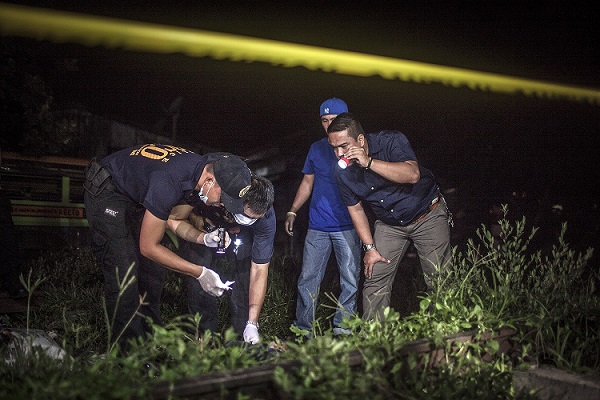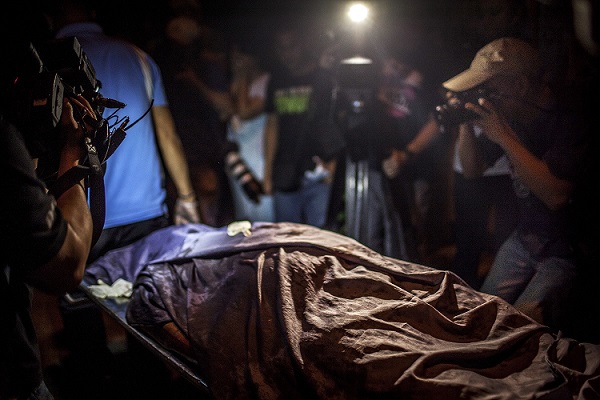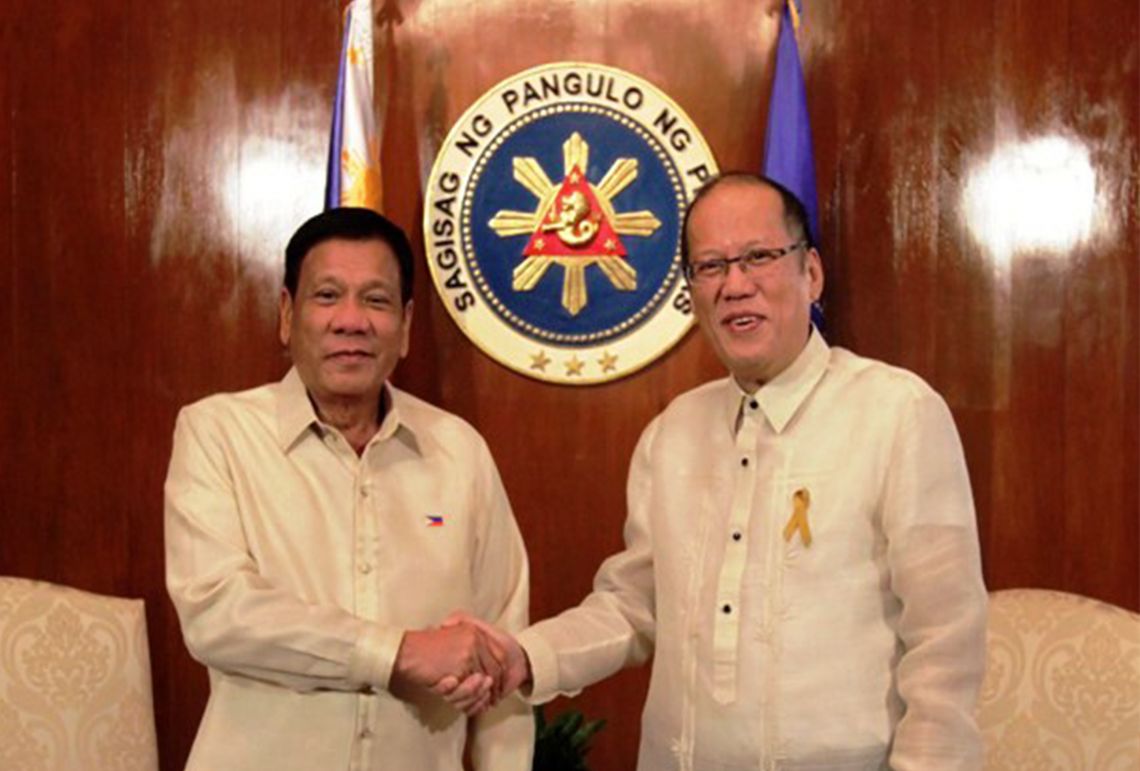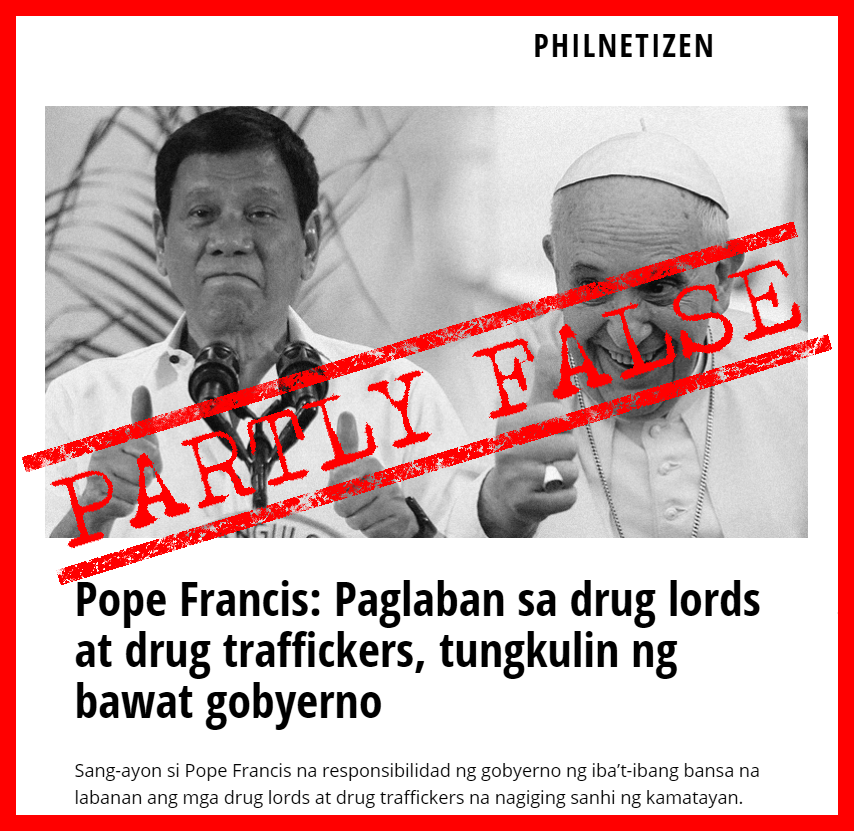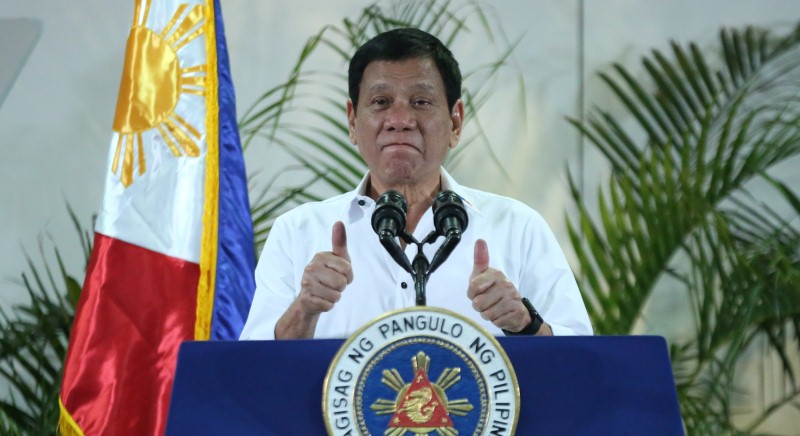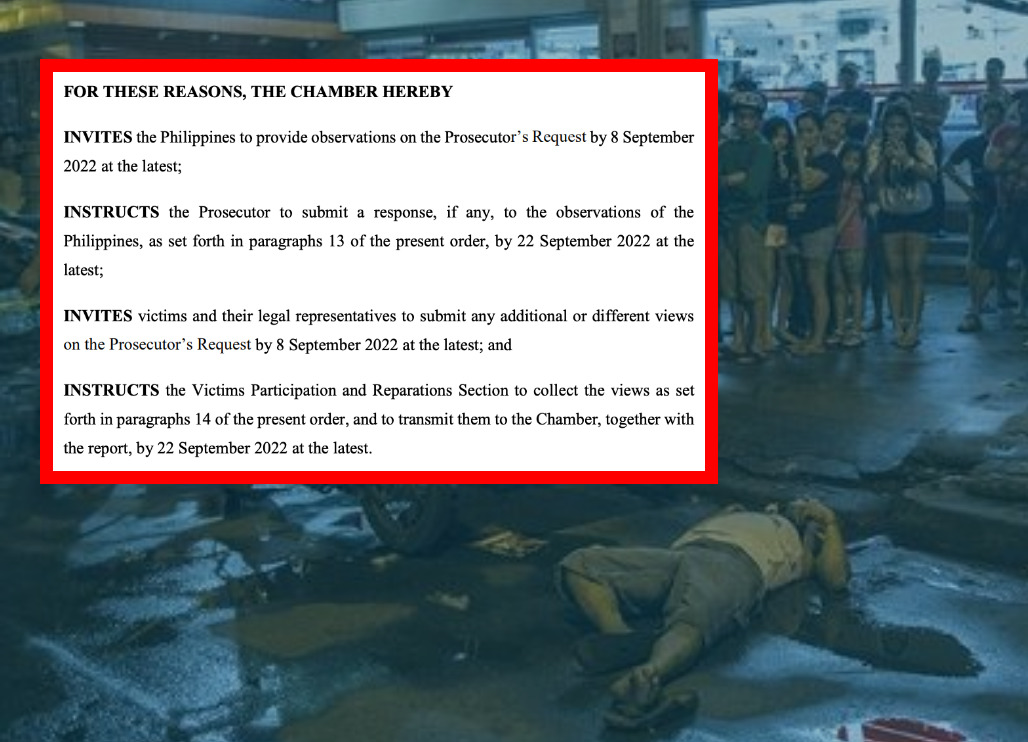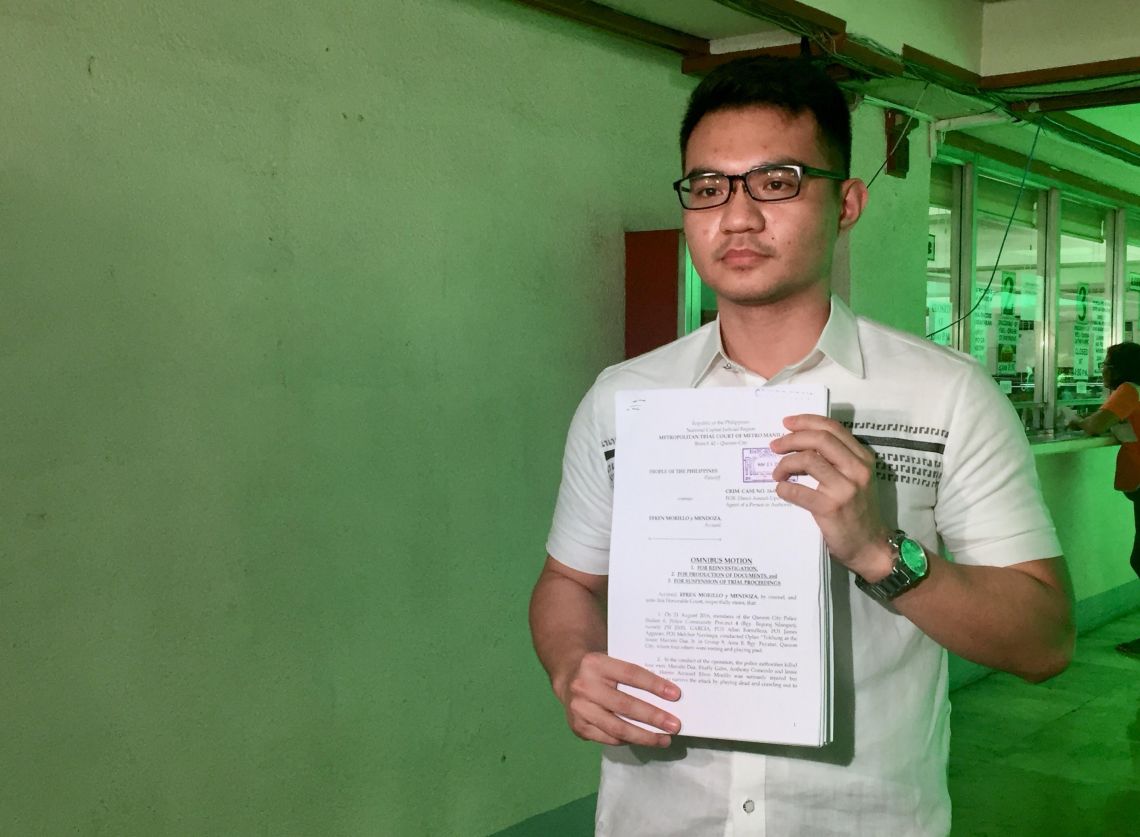
Lawyer Gil Anthony Aquino of Centerlaw files on behalf of Oplan Tokhang survivor Efren Morillo an omnibus motion seeking to re-investigate the criminal case filed against him by Quezon City policemen.
When police chief Ronald de la Rosa was once asked to explain before the Senate the deaths in the drug war, he had one reply: “They resisted arrest. Otherwise, they would have been alive.”
“Nanlaban” has since become the catchphrase for cops to justify the use of force in killing drug suspects.
A prime example is the case of 28-year-old Efren Morillo, the lone survivor of an Aug. 21 Oplan Tokhang operation that killed four others. It is the first legal action that challenges the Duterte administration’s war on drugs.
Police claimed Morillo fired at them first and charged him with a criminal case for direct assault. But latest autopsy results, which lawyers of Morillo claim were kept by the police for six months, could bolster his case against the police.
“Either the (victims were shot) kneeling or sitting down,” said lawyer Gil Anthony Aquino of the Center for International Law (Centerlaw) when he filed on Thursday on behalf of the victims a motion for the Quezon City Metropolitan Trial Court to re-investigate the case filed against Morillo and suspend its proceedings.
Shot twice in the chest point blank, Morillo said he had to play dead and jump into a ravine to fight for his life, while his four other companions were gunned down, one by one, execution-style. (See Drug war survivor claims police shot at them, ‘execution-style’)
Morillo had sustained two wounds and an injury in his lung, his medical certificate shows. His four companions died from gunshots in the head, trunk, neck or extremities, where the bullets were fired either upward or downward, autopsies show.
“So if it is a shootout, siguro (maybe) we will not expect those kinds of gunshot wounds, ‘di ba (right)?” Aquino said, adding that bullets in a shootout would most likely follow a straight and sharp trajectory.
The petition wants the court to consider the cops’ withholding of evidence from the prosecutor. The lawyers said any evidence — from results of forensic examination to any type of documentation from the scene — is crucial to Morillo’s defense.
An example is the sworn statement of Maribeth Bartolay, which police obtained a day after the incident. The wife of one of the victims, Bartolay said the cops, disguised in civilian clothes, barged into their home before she heard a series of gunfire.
But Bartolay’s account was never referred to the inquest officer or the investigating prosecutor.
Seeking protection, preserving evidence
It was only in February when Morillo was furnished a copy of these documents, as well as autopsy results, evidence logs, photographic logs, sketch details, inventory of evidence collected and the list of persons who entered the crime scene — after the Court of Appeals compelled the police to do so when it granted the victims’ request for a writ of amparo.
A writ of amparo is a remedy available to any person whose life and security are violated or threatened, such as victims of extralegal killings, provided by a government agency or any private institution that can secure their safety.
The appellate court granted the petition on Feb. 10, converting the temporary restraining order issued against the involved policemen into a permanent one.
Respondents P/SI Emil S. Garcia, PO3 Allan Formilleza, PO1 James Aggarao and P01 Melchor Navisaga and any of their agents were prevented from entering within a one-kilometer radius from the residences and work addresses of Morillo and the other victims’ families.
The court also suspended the implementation of Oplan Tokhang in areas under the jurisdiction of the Quezon City Police District 6, as sought by Morillo’s camp.
Aside from presenting “self-serving statements,” the police did not observe proper inquest proceedings when they filed the criminal case with the prosecutor, Aquino said.
They did not present the statement of Morillo, and witnesses’ accounts which they were able to obtain as well.
Under Rule 15 of the Philippine National Police Operational Procedures, “in cases of armed confrontation wherein the suspect dies, the team leader of the operating unit shall submit the incident for inquest before the duty Inquest Prosecutor prior to the removal of the body from the scene, except in areas where there are no inquest prosecutors.”
“Of course, the investigating prosecutor his hands are tied. On its face ‘yung pinakita lang sa kanya ay (what were shown to him are) self-serving statements, he will have to find probable cause,” Aquino told VERA Files.
Aquino added that the Scene of the Crime Operatives arrived only three hours after the incident.
“You’re not supposed to move the bodies. You’re not supposed to move evidence until the SOCO gets there,” he said.
Aquino told VERA Files he believes the body of one of the victims, Marcelo Daa, was moved because it was seen by his family sitting down on a chair. But Morillo claims he saw him go down on the ground after getting shot.
The involved police officers also ate at the scene of the crime, contaminating the evidence, Aquino added.
However, Morillo’s camp only has a few photos of the crime scene, limited by what was provided
“So, this is something we intend to prove during trial once we have enough evidence,” Aquino said in a text message.
Investigating the police
The motion also asks the court to compel police officers to produce documents. Aquino lamented the lack of paraffin results and ballistic examination in the stash of police documents.
“(E)very bullet that has been fired should undergo forensic examination. Where are the results of those forensic examinations? Where are the results of those disciplinary actions undertaken by these rogue policemen?” Aquino told VERA Files.
“We really think that these junior policemen abused their power, these junior policemen broke the law. We are not saying that the PNP has a state policy of killing poor people outright. Maybe the evidence points to that but what we are saying for this case is that these junior policemen violated the law,” Aquino said.
Aquino said every police operation shall be subject to investigation, but only after Korean businessman Jee Ick Joo was murdered within Camp Crame’s grounds, did the police start to investigate killings.
He hopes that with the resumption of Oplan Tokhang, the PNP will be able to address its earlier lapses.
On March 2, Morillo filed criminal charges before the Office of the Ombudsman for murder, frustrated murder, robbery, planting of drugs and firearms against the four policemen and five other agents.
The hearing on the case will be on March 14 at 1:30 p.m.
